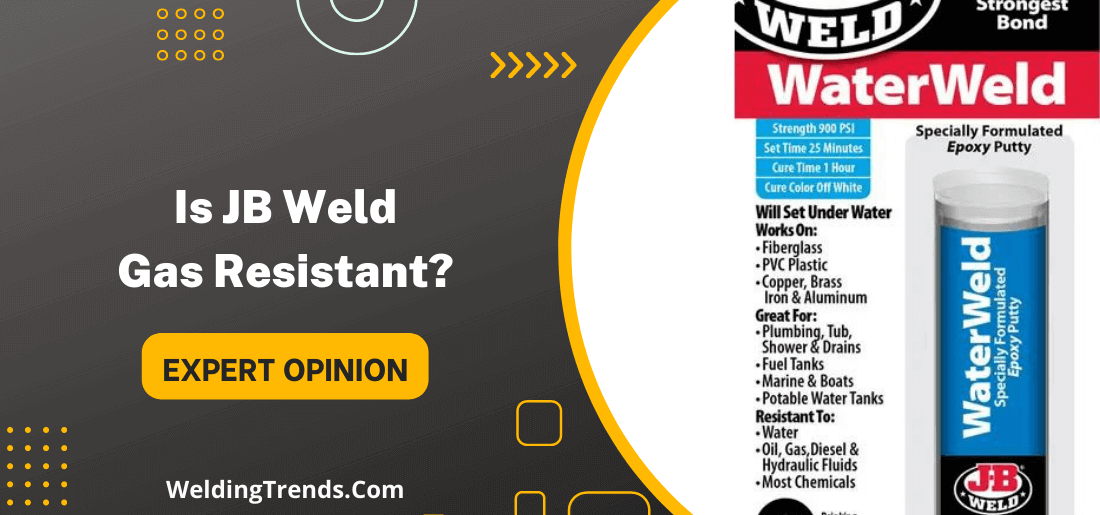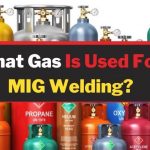JB weld is a popular welding product that is known for its strength and durability. It is also a popular gas-resistant epoxy that many people use to fix things around the house. JB weld is a popular product for repairing metal objects.
It can be used on a variety of materials, including steel and aluminum. But is JB weld gas resistant? In other words, can it withstand the effects of gasoline or other fuels? Let’s take a closer look.
What is J-B Weld?
JB weld is an epoxy that is made up of two parts: a resin and a hardener. When these two parts are mixed, they create a strong bond that can be used to repair the metal, plastic and even glass. JB weld is most commonly used to fix cracks or holes in metal objects.
It can also be used to attach metal to other surfaces, such as wood or concrete. In addition, the JB weld can be used to fill gaps and voids in metal surfaces.
How does JB weld work and is it gas resistant?
JB weld works by creating a chemical bond between two surfaces. The resin and hardener create a strong bond that can withstand a variety of different stresses. This includes the stress of gasoline or other fuels.
So, while the JB weld is gas resistant, it is not 100% gasproof.
It is important to note that the JB weld is not glued. It is an adhesive that creates a bond between two surfaces.
When mixed, the two parts of the JB weld create a chemical reaction that produces heat. This heat causes the JB weld to set and harden, forming a strong bond between the two surfaces.
The JB weld can also be used to fill gaps or cracks in surfaces. It is important to note that JB weld is not designed for use on open flames or in high-heat environments. It is also not recommended for use on surfaces that will be exposed to strong chemicals.
Why is J-B Weld Gas Resistant?
JB Weld can resist gasoline and other fuels because it contains no volatile solvents. Gasoline is composed of a mixture of hydrocarbons, which are molecules that contain only hydrogen and carbon atoms.
When these molecules come into contact with J-B Weld, they are unable to break the bond between the weld and the metal surface. This makes J-B Weld an ideal material for repairing gas tanks, fuel lines and other components that come into contact with gasoline.
Additionally, J-B Weld can resist other chemicals that are commonly found in fuels, such as ethanol and methanol.
While J-B Weld is resistant to many common fuels and chemicals, it is not recommended for use with aviation gasoline or racing fuels. These types of fuel contain additives that can degrade the bond between the weld and the metal surface. If you need to repair an aviation or racing fuel tank, it is best to use a different type of welding material.
The JB Weld Company is the creator of the original cold weld two-part epoxy system that provides strong, lasting repairs to metal and multiple surfaces.
Over 40 years ago, J-B Weld was developed as an alternative to welding, soldering and brazing. Since then, JB Weld has set the standard for strong, durable bonding in the automotive, plumbing, marine and construction industries.
Today, we continue to lead the way with innovative products like our Gas Tank Repair Kit, which is specially formulated to resist fuels and chemicals.
With gas prices on the rise, it’s more important than ever to have a reliable way to repair gas tanks and fuel lines. With JB Weld, you can rest assured that your repairs will withstand the elements and keep your vehicle running smoothly.
What should you use JB weld for and what should you avoid using it?
JB weld is a versatile product that can be used for a variety of tasks, ranging from repairs to creating new projects. However, there are some things that JB weld should not be used for as it may not adhere properly or create a strong enough bond.
Some examples of what not to use JB weld for include:
- Tasks that require a flexible or pliable bond, as JB weld is not designed for this purpose.
- Any task that will be exposed to high temperatures, as the JB weld may not be able to withstand the heat.
- Tasks that require a clear bond, as the JB weld will leave a visible seam.
- Tasks that require a very strong bond, as JB weld may not be strong enough for some applications.
Can J-B Weld be Used on Gas Tanks?
Yes, J-B Weld can be used on gas tanks. It is a strong, durable epoxy that can withstand high temperatures and pressures. J-B Weld will bond to most surfaces, including metal, plastic, wood and concrete. It can be used to repair leaks, holes and cracks in gas tanks.
Are there any precautions you need to follow when using JB weld gas resistant products?
Yes, there are some precautions you need to take when using JB weld gas resistant products.
- First, make sure that the area you are working in is well-ventilated.
- Second, wear gloves and a mask when handling the product.
- Third, use caution when applying the product to avoid contact with your skin or eyes.
- Finally, follow the directions on the product label carefully.
Final Verdict
JB Weld is resistant to many gasses, including acetylene, ammonia, carbon dioxide, chlorine gas and sulfur dioxide. It also resists most solvents.
It is often recommended as a gas resistant sealant because it forms an airtight and watertight bond. JB weld has been tested and proven to be gas resistant in both laboratory and real-world conditions.
Yes, the JB weld is gas resistant, but it is not gas proof. It can withstand a small amount of gas or vapor, but if too much pressure builds up it will eventually break. For this reason, JB weld should not be used to repair tanks that contain gasses or vapors.




